Welcome, Sidney!
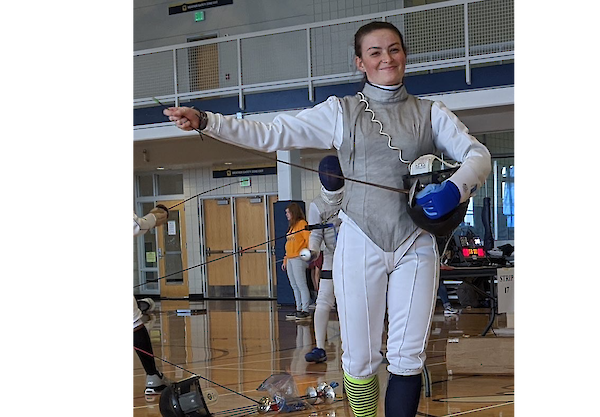
Sidney Anderson recently joined IAN as a Science Communicator. She graduated from College of the Atlantic in 2019 and from Georgia Southern University in 2021. She has conducted research on the yellow-spotted salamander, the Eastern painted turtle, and the Florida scrub lizard. She enjoys camping, birding, playing sports, and making art. She hopes to use her education and research experience in combination with her love of art and writing to help make science and conservation more accessible to anyone interested in learning about these topics.
Global Sustainability Scholars Arrive
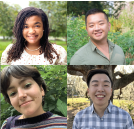
From May to June, we will be joined by four Global Sustainability Scholars and Fellows: Lawren Caldwell, Anna Calderon, Nick An, and Pheng Lor. Global Sustainability Scholars are undergraduate and graduate students from diverse backgrounds researching sustainability challenges facing communities and environments. In collaboration with COAST Card, these students will work to enhance stakeholder engagement and evaluation and work to generate the Potomac COAST Card.
Summer interns learned science communication
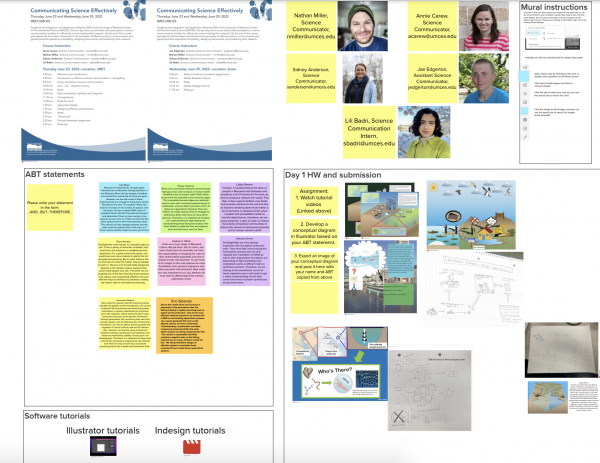
This summer’s interns at the Institute of Marine and Environmental Technology (IMET) took part in a two-day science communication course lead by various IAN science communicators on June 23rd and 29th. Throughout this course, they learned about the foundation of science communication and the how to apply these principles to their own work. The students are each conducting research on different aspects of Baltimore’s Inner Harbor, and by the end of the course, each student applied what they learned in the course to designing and presenting a
conceptual diagram about that research to their peers.
Maryland Coastal Bays State of the Bays Report now available!
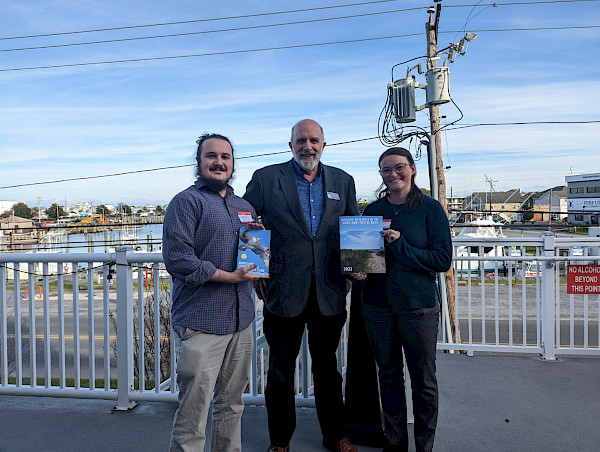
On November 14th, the Maryland Coastal Bays Program and UMCES released the 5-year State of the Bays Report at the Marlin Club in Ocean City, Maryland. This year’s report, “Building Resilience in the Maryland Coastal Bays,” highlighted the threats and changes expected in the coastal bays and the actions currently being taken, or that need to be taken, in order to address these changes. This collaborative document sends the message that while some change cannot be avoided, there are actions that can be taken to maintain the health of important ecosystems. This report was released in conjunction with the 2021 Maryland Coastal Bays Report Card.
COAST Card Annual Meeting
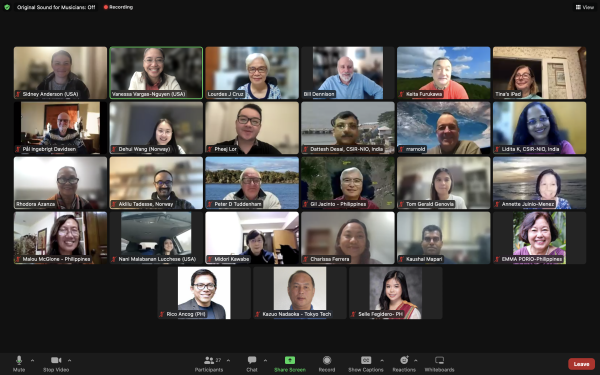
On December 6th, the COAST Card Project held their third annual meeting. This virtual meeting brought together over 25 scientists from the United States, Norway, Japan, India, and the Philippines to discuss the project’s accomplishments over the last year and to set goals for 2023. Partners across the globe engaged in stakeholder engagement, marine spatial planning sessions, and hosted listening sessions in their communities. In the coming year, partners will continue to engage with the public and publish peer-reviewed papers, as well as begin in-person site visits to international study sites. Follow the link below to see the discussion board from the meeting and watch video updates on all the COAST Card project has accomplished throughout 2022.
First COAST Card workshop in Manila, Philippines
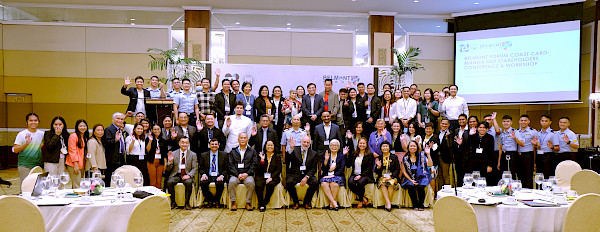
From February 26th to March 6th, members of the COAST Card team travelled to Manila Bay in the Philippines for the first in-person meeting of the project. This meeting brought together local stakeholders and scientists, as well as representatives from the project’s 4 international partners—Japan, India, Norway, and the United States. Over the course of the trip, project members gave talks, facilitated workshops, and engaged with the local community to begin development of the Manila Bay and Watershed Report Card. Field trips around the bay allowed project partners to experience this important area in the Philippines and see the characteristics of the bay that the team has been discussing virtually for the last two years. The team will be traveling to Tokyo Bay in November to continue its international site visits.
Highlights from the Inclusive Science Communication Symposium
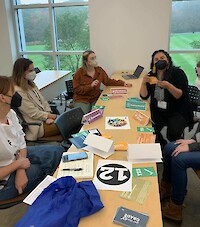
From October 19-21, science communicators Sidney Anderson and Roshni Nair attended the Inclusive Science Communication Symposium hosted by the Metcalf Institution at the University of Rhode Island. While there, they attended sessions on data accessibility, inclusionary storytelling, community building through trust, and new dissemination techniques. They also hosted a session on stakeholder engagement, where they discussed IAN’s engagement strategies, the term “stakeholder” and its alternatives, participant methods for engagement, and led participants through the Get the Grade game, which IAN uses frequently in their engagement workshops. This symposium was a wealth of new and highly applicable information that IAN is excited to work into our own science communication and relationship-building strategies.
COAST Card team's Tokyo experience: Amamo2023 and J-COAST Conference insights

From November 17–22, the COAST Card team met in Tokyo, Japan for the Amamo2023 and J-COAST conference and meeting hosted at the Sasikawa Peace Foundation. While there, team members listened to and presented talks on seagrass, blue carbon, youth engagement, science communication, and the COAST Card Project. The conference highlighted the importance of empowering and engaging youth in restoration efforts. They visited various places around Tokyo that are of interest to the COAST Card Project or serve as sites of engagement and restoration events.
Learning about reef recovery and conservation practices in Ishigaki Island
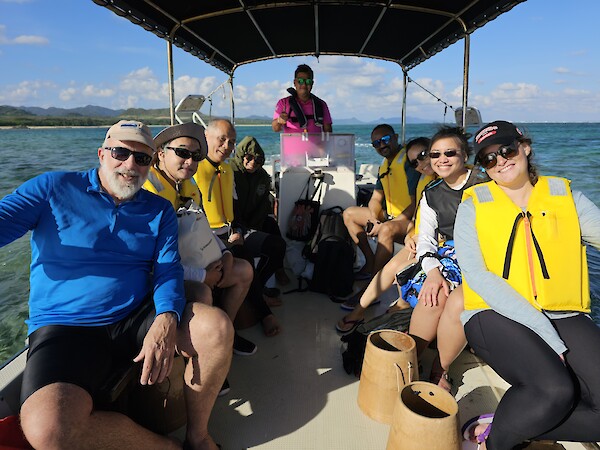
From November 22–24, the COAST Card partners visited the second Japanese study site, Ishigaki Island and Sekisei Lagoon. There, they visited multiple reef sites in different stages of recovery from bleaching events and saw the mitigation practices implemented by farmers to reduce agricultural runoff. They also met with different stakeholders from different sectors that are active in the protection and conservation of Ishigaki Island.
COAST Card visits Goa, India for third meeting
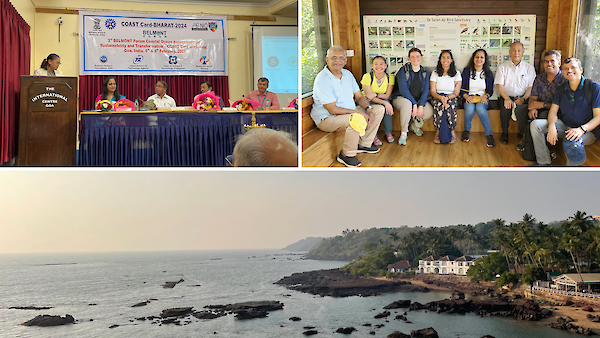
From February 4th to 10th, the COAST Card team visited Goa, India for their third study site visit. While there, they participated in the Bharat-COAST Meeting, presenting on the Chesapeake Bay Coast Card, moderating sessions, judging a poster session, and helping to facilitate a Listening Session. The meeting brought together scientists, doctors, community leaders, and students of all ages to discuss the sustainability of the Goa coast and the social and ecological threats it faces. Following the meeting, the team visited mangrove forests, historic churches, a spice farm, the National Institute of Oceanography, and a local eco-farm. These field trips gave the team members first-hand experience with the study site and provided ample inspiration for the last year of the COAST Card Project.
Another successful IMET Open House
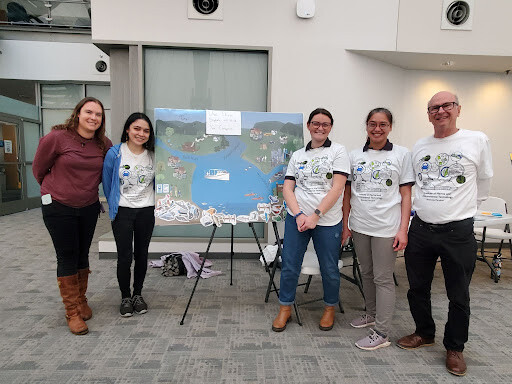
On May 4th, IAN staff attended the IMET Open House event in Baltimore, MD. This event saw representatives from the UMCES Labs, local partners, and the Maryland area engaging with the public to inform about the amazing research and work being done in the Chesapeake Bay and Baltimore Harbor. The event spread over three floors of the building and was well attended by the public for its duration. Young attendees visited booths and completed their stamp passports, while also taking pictures with the R2-D2 replica brought by Maryland StemFest to celebrate Star Wars Day. IAN staff conducted a reduced version of the Listening Session model to learn how the public lives, works, and plays in the area and their visions for a sustainable Pataspco River.
Chesapeake Monitoring Cooperative In-Person Meeting
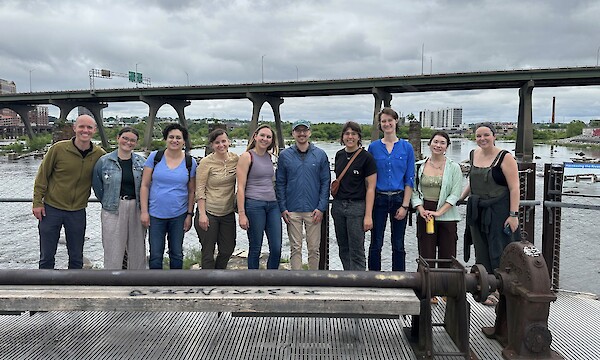
On May 15th and 16th, Ann Foo and Sidney Anderson attended the in-person meeting for the Chesapeake Monitoring Cooperative in Richmond, Virginia, hosted by the Alliance for the Chesapeake Bay. This project, entering its fourth year, is a collaboration among Maryland, Pennsylvania, and Virginia aiming to support water monitoring across the Chesapeake Bay Watershed and make that data accessible to those interested in it. Members from each organization gather once a year to assess upcoming goals, new ideas, and strengthen the cooperative team.
COAST Card USA Hosts Chesapeake Meeting
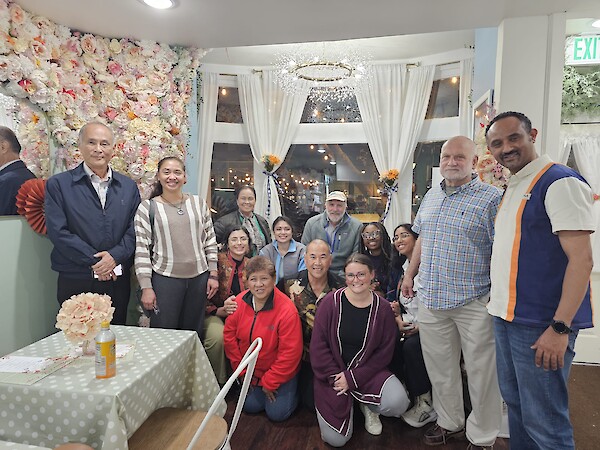
From October 7-11, the COAST Card Chesapeake team hosted their international collaborators for the last field site visit of the COAST Card project. While here, they visited Poplar Island, an island off the coast of Maryland being reconstructed using dredge material, toured the HPL Oyster Hatchery, and took a boat tour of Baltimore Harbor, on which the captain took the boat a little farther to get a view of the Key Bridge. They also held their 5th Annual Meeting, which focused on wrapping up the COAST Card project and future proposals, and participated in the day-long Baltimore Harbor Summit at the Institute for Marine and Environmental Technology.
SECOORA Workshop
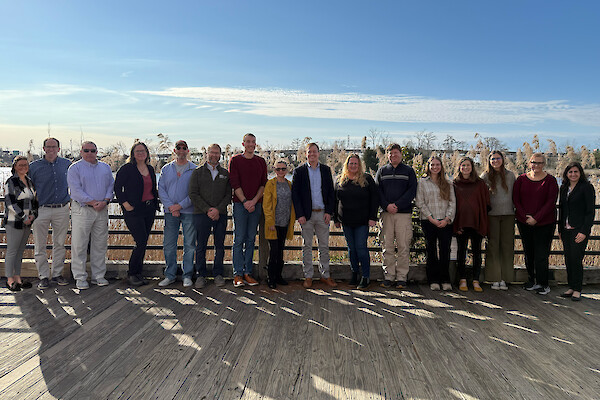
On January 30th and 31st, members of the IAN team traveled to Wilmington, NC to help facilitate the first SECOORA Workshop, bringing together shellfish and beach condition monitoring experts and scientists developing water quality reporting tools. The workshop presented the current capabilities of beach condition and water quality reporting models and applications and solicited feedback from those making the decisions to close water access due to poor water quality. The group outlined future goals for the tools and identified priorities for future work.
Check out the project page here.

